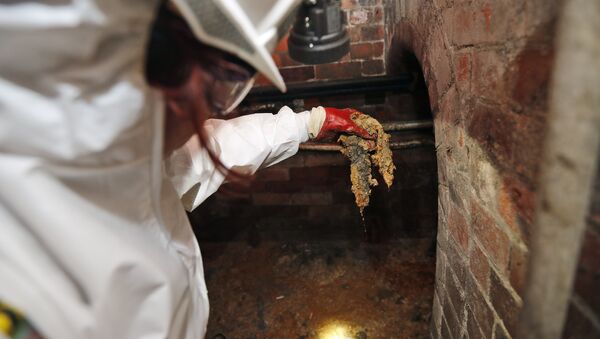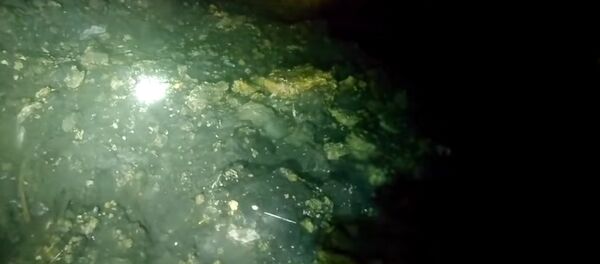Manufacturers will start using "fine to flush" symbols on product labelling for wet wipes passing strict guidelines. Swindon-based technical experts of Water Research Centre (WRc)will aid companies in testing the ‘flushability' of their products.
"This is an important step in the battle against blockages," Water UK chief executive Michael Roberts said. "We've all seen the impact of fatbergs, and we want to see fewer of them."
"Improving the environment is at the core of what the water industry does, and the new ‘fine to flush' standard that we've created will make it easier for consumers to buy an environmentally friendly product instead of one which clogs up drains and sewers," Mr. Roberts added.
A shocking 250-metre fatberg in Whitechapel was discovered in London in 2017, weighing 130 tonnes. A remaining chunk of the cesspit was commissioned to the London Museum last February.
Paid a visit to Whitechapel this morning where @thameswater discovered the monster 130-tonne #fatberg last year. The company has installed a special edition manhole cover with @WrekinProducts to mark the anniversary @UtilityWeek https://t.co/Oq8QB59OSN pic.twitter.com/RymEN1UjPi
— Katey Pigden (@KateyPigden) September 12, 2018
Shout out to the absolute artist who decided the bit of the Whitechapel FATBERG to be displayed at the Museum of London should have a Double Decker wrapper sticking out of it. I see your work & I appreciate it. pic.twitter.com/zEcuC035dH
— Hannah Jane Parkinson (@ladyhaja) April 15, 2018
Sidmouth, Devon residents were shocked to find a 64-metre fatberg this week lurking beneath city streets. The fatberg, more than twice the height of the iconic Tower of London, will take roughly eight weeks to remove from sewers, South West Water workers claim.
— Environment Agency (@EnvAgency) January 8, 2019
I collected 561 #wetwipes this morning along the river bank. Please DO NOT flush ANY wet wipe down the loo even if the packaging states that they are ‘Flushable’. 😡🤢 #myplasticpromise pic.twitter.com/MViZrJk5gu
— Rubbish Walks (@UKrubbishwalks) December 16, 2018
A Water UK study revealed the dangers of wet wipes, which showed "unflushable" wet wipes accounted for roughly 93 percent of fatberg blockages as the products do not break down quickly, prompting the water industry to crack down on the odious threat to UK infrastructure.
What do bras, wet wipes and @ManUtd football scarves have in common? They’re all things that were flushed down @VirginTrains toilets last year! So remember the three Ps of flushing when you’re onboard this year https://t.co/ppiXSuWyjF pic.twitter.com/8hIx43p3by
— Virgin (@Virgin) January 10, 2019
"In 2018, during our annual Great British Beach Clean and survey, we found on average 12 wet wipes per 100 metres of beach cleaned — an increase of more than 300% over the past decade," Laura Foster, Marine Conservation Society head of clean seas said. "We want a simple system where a product is either clearly labelled as ‘do not flush' or has passed the ‘fine to flush' standard."



